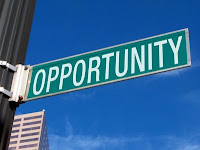
A few years ago I interviewed several casting directors in preparation for my seminar. I found it very interesting, and take note of what feedback over laps. They are talking about specifically about commercial auditions... Here's what they said:
MICHAEL LIEN
(Lien Cowan Casting, now retired)
“Commercials are the grassroots of our industry. I have seen a lot of successful actors go on to do series and feature work. I think this is because commercial actors learn to sharpen their instincts, allowing them to pick up things quickly and make smart decisions. Thus, when they go in to read for a series or feature they have been seasoned by the commercial auditioning process. It’s really a great proving ground”
• Know when to leave the room, don’t ask to do things over and over again.
• Listen before you start asking questions.
• Make sure the head shot still resembles you.
• Don’t lie on your resume
• Don’t list your commercial credits on a resume (it will work against you)
• Be able to improv or tell an interesting story when casting for commercials that have no dialog.
• If you have a physical tick you do really well, make it work for you as much as you can.
ROSS LACY
(Ross Lacy Casting)
“It’s important actors remind themselves to listen to direction. Many times they get all caught up in the excitement of what their doing and forget to listen first.”
• When auditioning, stay in the moment and try to keep it real.
• Treat a commercial audition as if going up for a film role. Take it seriously, because commercials are deceivingly difficult.
• Remember, we’re looking for one or two key seconds in a performance that hit a certain emotion.
• Read through the script and try and visualize the entire commercial, from there you can break it down and start to make choices.
BRIDGET MCBRIDE
(McBride Casting) an ex-actor, Bridget has been casting for over 10 years)
“You need to have a life beyond acting. I can always tell the needy, self absorbed people from the interesting ones. Work on yourself, pursue other interests, try and be a well rounded person and it will show up in your audition.”
• This sounds trivial, but please be on time. It only takes a couple of people showing up late to throw the entire day out of sync.
• While your sitting around, instead of whining about it, use this time to PREPARE and GET FOCUSED. Overall, people “wing-it” way too much. Don’t be one of them
• Go to Commercial classes.
• It’s so important to develop your improv skills
• After a callback, don’t take it personally
- Scott Young
Commercial Success/ Shoot a Scene. Edit Your Reel




















